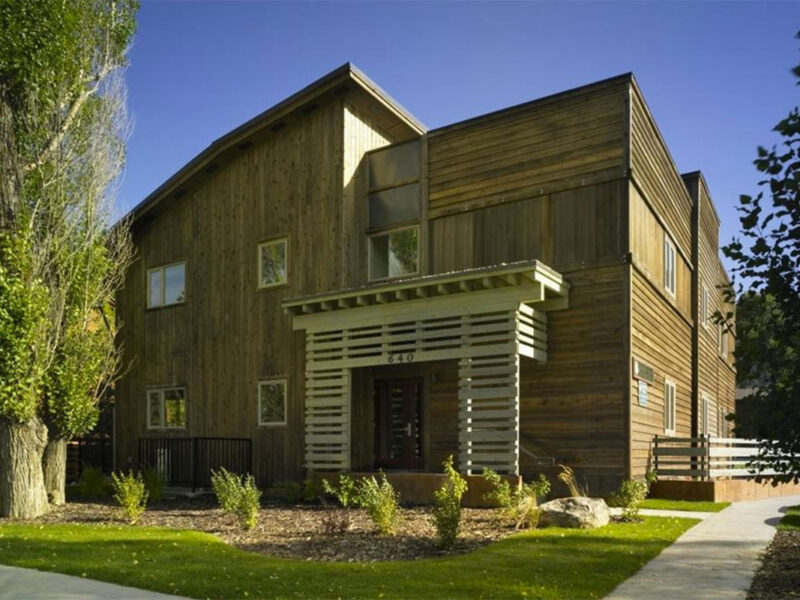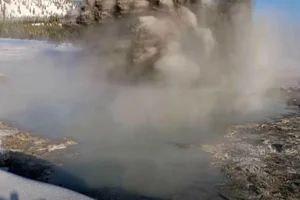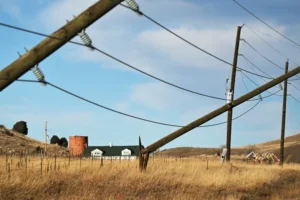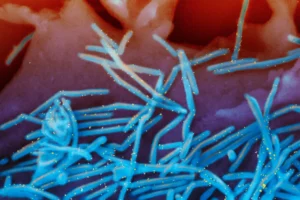Cost is Driving the Dearth of Inpatient Rehab Services in Jackson
Alliance of healthcare providers is working to tackle the complex problem
- Published In: Other News & Features
- Last Updated: Sep 02, 2023

Mental Health & Recovery Services of Jackson Hole provides an array of counseling, treatment, therapy, crisis services and case management to members of the community. The region is tackling the dual problems of mental illness and substance use. (Courtesy photo from the Mental Health & Recovery Services of Jackson Hole)
By Alec Klein
Special to the Wyoming Truth
Community leaders readily agree that Jackson Hole has long been in need of an inpatient rehabilitation center to help people struggling with alcohol and other substance use disorders. But the solution isn’t so readily apparent.
The problem: Cost.
To build an inpatient rehab center would require tens of millions of dollars—and that doesn’t even account for the substantial funding that would be needed to get it accredited and to keep it operating, experts say. Those costs include a medical director, psychiatrist, 24-hour nursing staff and other support workers, including case managers and certified nursing assistants.

“An inpatient unit would not be sustainable in Jackson due to the economies of scale,” said Deidre Ashley, executive director of the nonprofit Mental Health & Recovery Services of Jackson Hole, in an extensive interview with the Wyoming Truth yesterday.
But Ashley, an industry veteran who has worked in the field for over two decades, including nearly a dozen as the head of her nonprofit, is part of a broader coalition that’s tackling the complex problem.
In recent months, Ashley and other service providers in the region have come together, creating what’s called the Behavioral Health Alliance, a working group that is seeking ways to better serve people with mental health and substance use issues. So far, Ashley said, the regional alliance has identified three areas of focus: crisis, treatment and prevention.
The alliance grew out of an assessment of behavioral health in Teton County, a study led by the Community Foundation of Jackson Hole, particularly in the face of the COVID-19 pandemic. The report noted, among other things, that Wyoming ranked 50th in the nation on mental health and struggles with one of the highest suicide rates in the country.
“While there were some things that were uniquely helpful about being in Teton County during the pandemic, such as access to the outdoors, there were also many ways in which the pandemic was especially challenging for the mental well-being of those living and working in Teton County,” the report noted. “In particular, soaring land and housing prices displaced many people and created new forms of economic insecurity and hardship.”
Ashley, however, noted that what is happening in Teton is part of a larger societal—if troubling—trend.
“Overall, what I can tell you is, this is something that is happening across the nation and most definitely across the state,” she said, adding that, “there’s a growing demand” for mental health and substance use services in the region.
Teton County, for all of its obvious beauty and touted wealth, has not been immune to the afflictions of alcohol addiction. The county boasts a higher percentage of adults reporting binge or excessive drinking than that of the state or nation, according to a countrywide report issued earlier this year.
Over 20% — about one in five people in Teton County, home to the city of Jackson —reported excessive drinking. What’s more, 18% of motor vehicle crash deaths in Teton County involved alcohol. Dozens of people have perished over the past several years, records show. Driving while under the influence remains one of the most common crimes in Teton County, according to a yearlong data analysis by the Wyoming Truth last year.
Mental health also is a top concern among Jackson Hole residents. Nearly half reported that they struggled with their mental health during the pandemic, and about half of them sought help, according to a report last year. COVID-19 wasn’t the only culprit; the high cost of housing and the lack of enough income to get by also contributed to the problem.
The nearest impatient rehab center is in Idaho Falls, a stretch of about two hours by car over the state border from Jackson. St. John’s, the hospital in Jackson, offers detox medical services for patients in need. But those are for short-term stays of usually just a handful of days.
Ashley, the head of Mental Health & Recovery Services of Jackson Hole, said she has talked about these perennial issues with Jeff Sollis, who last year was named chief executive officer of nearby St. John’s Health.
“We’ve had these discussions,” she said about finding ways to provide “next-level crisis services.” Those services would fall just a step below inpatient rehab services. They would include what’s called “crisis stabilization programs,” shorter-term stays lasting for a matter of days or a few weeks. Officials of St. John’s did not respond to requests for comment.
Ashley noted that, while the costs to create and run an inpatient rehab center in Jackson are prohibitively high, “It doesn’t mean it will never be feasible.” But until then, Ashley said there are other options, which include her nonprofit, Mental Health & Recovery Services of Jackson Hole, one of the main service providers in the region that’s tackling the dual problems of mental illness and substance use.
The nonprofit was formed by the recent merger of Jackson Hole Community Counseling and the Curran-Seeley Foundation. The idea of the combination wasn’t simply to put together services for mental health and substance use but to “integrate those programs,” Ashley said, “so we’re treating the whole person.”
The combined entity, which is now entering the implementation stage of the merger, is believed to be the largest center for behavioral services in the Teton region. The nonprofit helps about 2,500 people a year with a staff of about 35 people, offering education, prevention, crisis intervention and medication services. About 20% of its budget comes from fundraising. The state provides about a third of its funding.
Cost, of course, persists as a factor for patients in need of such services.
“The affordability piece is a huge part of what’s going on,” Ashley said, referring to insurance and out-of-pocket costs to patients, though she stressed that the nonprofit works with patients to reduce fees as needed. “Our mission is to make those services affordable,” she said.
Cost is also behind the growing scarcity of inpatient rehab centers not just in Jackson but everywhere. “Across the country, we’re losing them,” Ashley said, in large part because the expense of maintaining inpatient rehab centers makes many of them unsustainable.
Cost notwithstanding, the need for an inpatient rehab center in Jackson remains. “Is there a need?” Ashley asked rhetorically. “Always.”













